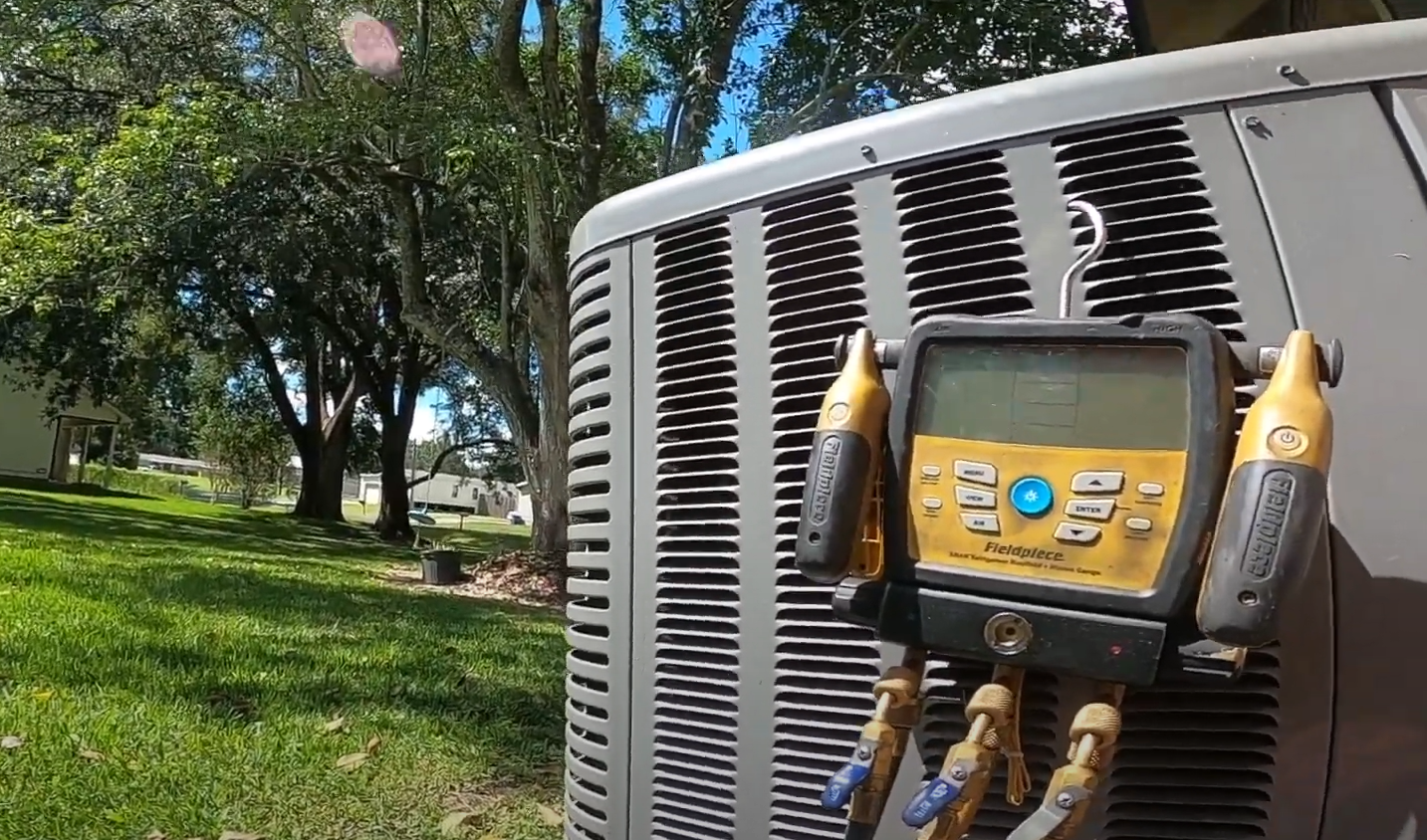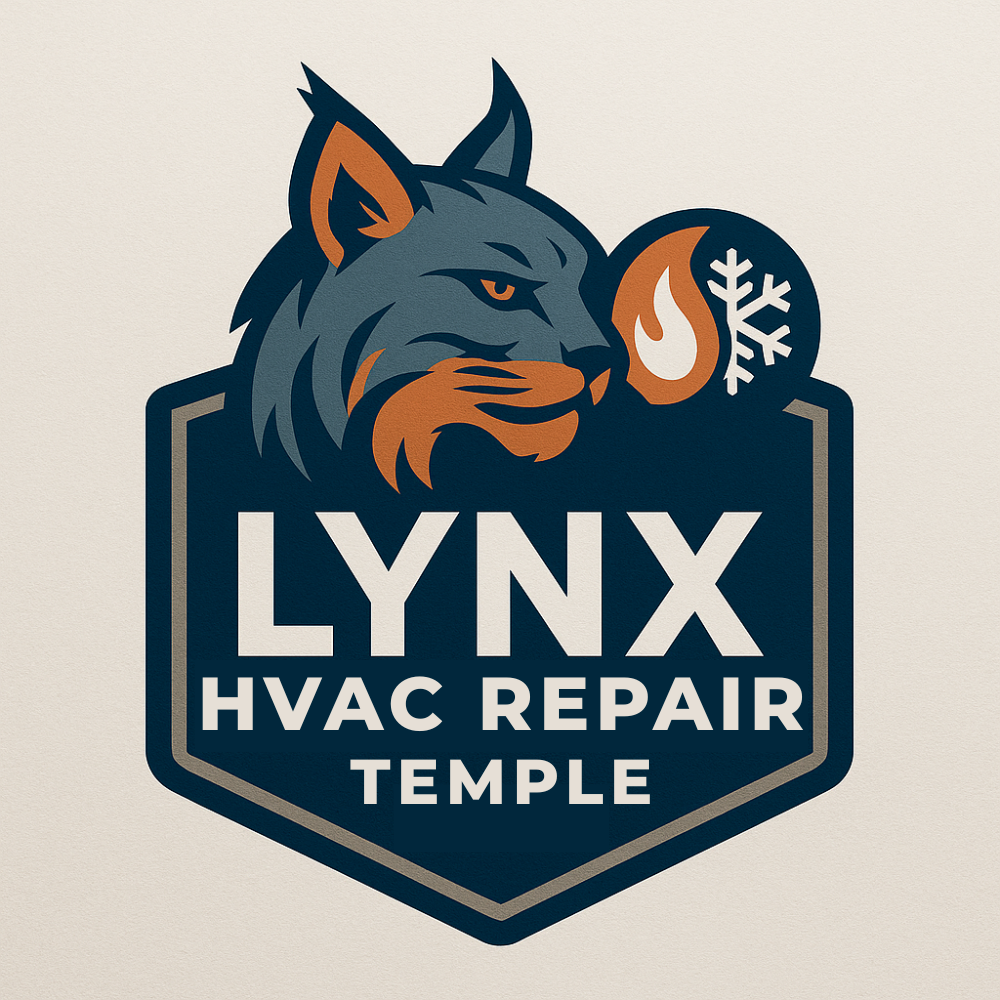HVAC Sound Dampening: A Professional Guide To Quieter Home Comfort Systems
HVAC Sound Dampening: A Professional Guide To Quieter Home Comfort Systems
Is your HVAC system making too much noise? A noisy heating and cooling system can disrupt your peace, affect sleep quality, and make it harder to enjoy your home. Professional
HVAC sound dampening solutions such as
ductwork sound insulation and
air duct soundproofing can reduce system noise by up to 50% through strategic placement of sound-absorbing materials, proper equipment maintenance, and advanced vibration control techniques.
Your HVAC system produces various types of noise, from low-frequency fan sounds to mechanical vibrations from compressors and pumps. These sounds often travel through ductwork, creating unwanted noise throughout your home. At Lynx HVAC Repair Temple, we specialize in identifying the root causes of HVAC noise and implementing targeted solutions like soundproofing ductwork and air duct noise reduction for Temple, TX homeowners.
Professional sound dampening not only creates a quieter indoor environment but can also improve your system's efficiency. When your HVAC equipment operates with less vibration and better-secured components, it experiences less wear and tear, potentially extending its lifespan and reducing energy consumption.
Key Takeaways
- Sound dampening techniques, including hvac duct soundproofing, can significantly reduce HVAC noise while improving system performance
- Professional assessment ensures proper identification of noise sources and customized solutions
- Regular maintenance combined with sound control measures like air duct sound dampening extends equipment life and efficiency
Understanding HVAC Sound Dampening
HVAC systems produce distinct types of noise through mechanical operation, air movement, and vibrations. These sounds travel through various pathways in homes and buildings, significantly affecting indoor comfort and peace of mind.
Sources of HVAC Noise
Air handlers and compressors generate mechanical noise through moving parts and motor operation. These components can create distinct rattling, humming, or buzzing sounds during normal operation.
Rushing air through ductwork produces a whooshing sound that intensifies at higher fan speeds. Loose connections may result in popping or banging noises, making air duct soundproofing or sound baffles for ductwork valuable solutions.
Vibrating equipment transfers sound energy into the building structure. Common culprits include:
- Unbalanced fan blades
- Loose mounting hardware
- Worn motor bearings
- Damaged isolation pads
The Impact of Noise on Home Comfort
Excessive HVAC noise disrupts sleep patterns and makes it difficult to relax or concentrate. Studies show that consistent background noise above 50 decibels can increase stress levels.
Loud HVAC systems force people to raise their voices or turn up TV volumes to compensate. This creates an uncomfortable living environment and reduces enjoyment of living spaces.
Regular exposure to equipment noise can lead to fatigue and decreased productivity when working from home. Many homeowners report improved satisfaction after implementing hvac noise reduction strategies.
Types of Noise Transmission in HVAC Systems
Airborne transmission occurs when sound waves travel directly through the air via supply registers and return grilles. This type of noise spreads easily between rooms through ductwork.
Structure-borne transmission happens when vibrating equipment transfers energy into walls, floors, and ceilings. The building materials then radiate this energy as audible sound throughout connected spaces.
Flanking transmission takes place when noise finds indirect paths around sound barriers through:
- Gaps around ductwork
- Electrical conduit runs
- Plumbing penetrations
- Wall cavities

Effective Noise Reduction Strategies for HVAC Systems
Proper noise reduction techniques can transform a noisy HVAC system into a whisper-quiet operation. Professional solutions target vibrations, duct noise, and mechanical sounds through targeted interventions at key points in the system.
Vibration Isolation and Support
Vibration mounts create a buffer between HVAC equipment and building structures. Spring isolators work best for heavy equipment like air handlers and condensing units, while neoprene pads suit lighter components.
Installing flexible connectors at duct connections prevents vibration transfer through the ductwork system. These connectors act as shock absorbers, reducing mechanical noise transmission.
Key Vibration Control Components:
- Spring isolators (95% vibration reduction)
- Neoprene isolation pads
- Flexible duct connectors
- Anti-vibration mounts
Soundproofing HVAC Ducts
Metal ducts naturally amplify and transmit noise throughout buildings. Wrapping ducts with mass-loaded vinyl creates a sound barrier that blocks noise transmission.
Installing lined turning vanes in duct elbows reduces turbulence and air noise. Square duct elbows generate more noise than curved designs.
Effective Duct Soundproofing Methods:
- Mass-loaded vinyl wrapping
- Acoustic duct lining
- Curved elbow designs
- Sound attenuators at key points
Acoustic Insulation and Sound-Absorbing Solutions
Fiberglass duct liner absorbs sound waves while providing thermal insulation. The thickness of the liner directly impacts its noise reduction capability - 1-inch liner typically reduces noise by 12-15 decibels.
Sound-absorbing panels installed near air handlers and return grilles capture noise before it enters living spaces. These panels work best when placed strategically in mechanical rooms.
Melamine foam offers excellent sound absorption for high-frequency noise common in HVAC systems.
Maintenance Tips for Minimizing Noise
Regular belt inspections prevent squealing and vibration from worn components. Replace loose or damaged belts immediately.
Clean ductwork reduces turbulence and whistling caused by debris buildup. Professional duct cleaning every 3-5 years maintains optimal airflow.
Essential Maintenance Checks:
- Belt tension and wear
- Loose fasteners and mounts
- Fan blade balance
- Duct sealing integrity
- Air filter condition
Lubricate all moving parts according to manufacturer specifications. Proper lubrication reduces mechanical noise from bearings and motors.
Innovative Technologies and Design Options
Modern HVAC sound reduction combines advanced mechanical components with strategic design elements to create quieter living spaces. Smart engineering and careful planning can reduce system noise by up to 70%.
Variable Speed Fans and Modern Compressors
Variable speed technology allows fans to operate at lower speeds during periods of reduced demand, significantly decreasing operational noise. These advanced systems adjust their output gradually rather than switching between full power and complete stops.
Modern compressors incorporate sound-dampening materials and vibration isolation mounts to minimize mechanical noise transmission. This technology proves especially effective in residential settings where quiet operation is essential.
The latest ECM (Electronically Commutated Motor) fans feature specialized blade designs that optimize airflow while reducing turbulence and associated noise. These motors typically operate 50% quieter than traditional single-speed units.
Acoustic Louvers and Barriers
Acoustic louvers redirect and absorb sound waves while maintaining proper airflow. These specialized installations work particularly well for outdoor units and mechanical rooms.
High-density sound barriers made from mass-loaded vinyl or composite materials can block up to 80% of HVAC noise. Professional installation ensures maximum effectiveness without compromising system performance.
Key barrier placement locations:
- Around outdoor condensing units
- Inside mechanical room walls
- Along main ductwork runs
- Near return air plenum
Building or Retrofitting an HVAC Closet
A well-designed HVAC closet incorporates multiple sound-dampening elements. Double-wall construction with acoustic insulation creates an effective sound barrier.
Essential closet features:
- Minimum 1-inch air gap between walls
- Sound-absorbing foam panels
- Sealed door frames with weatherstripping
- Anti-vibration mounts for equipment
Proper ventilation remains crucial in enclosed spaces. Strategic placement of return air grilles and supply vents helps maintain system efficiency while controlling noise transmission.
Considerations for Homes and Businesses in Temple, TX
Temple's hot summers and occasional cold winters create unique challenges for HVAC sound control. Local building designs and seasonal temperature fluctuations require specific approaches to noise reduction while maintaining system efficiency.
Common Noise Challenges in Local HVAC Installations
Heat pumps and air conditioners in Temple often run at high capacity during summer months, generating increased noise levels. The most frequent complaints stem from outdoor unit vibrations and ductwork rattling.
Older homes in Temple's historic districts typically have less insulation and thinner walls, making HVAC noise more noticeable. Metal ductwork expansion and contraction creates distinct popping sounds during temperature changes.
Multi-story buildings face unique challenges with mechanical room placement and vibration transfer through floor joists. Commercial properties near residential areas must be especially mindful of nighttime noise levels.
Selecting the Right Sound Dampening Materials
Top-performing materials for Temple's climate:
- Mass-loaded vinyl barriers for outdoor unit enclosures
- Fiberglass duct liner rated for high humidity
- Elastomeric foam insulation for pipes and small ducts
Mineral wool insulation performs well in local attic installations due to its heat resistance and sound absorption properties. Anti-vibration pads and spring isolators prevent mechanical noise transfer through building structures.
Installation considerations: Material selection must account for Temple's humidity levels and temperature extremes to maintain long-term effectiveness.
Ensuring Compliance with Local Noise Regulations
Temple's municipal code restricts mechanical equipment noise to 70 decibels at property lines during daytime hours. Commercial HVAC installations require proper documentation of sound control measures.
Regular maintenance checks should include noise level testing to ensure continued compliance. New installations must factor in distance from neighboring properties and potential sound reflection from nearby structures.
Professional sound measurements help verify system performance and identify potential issues before they generate complaints. Local zoning requirements may impose additional restrictions in mixed-use developments.
You might also like




